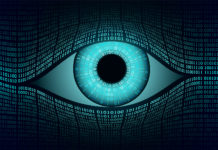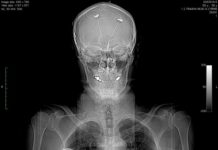Bedlam: Public Media, Power, and the Fight for Narrative Justice
A new mental health documentary awakens longstanding tensions around voice, representation, and the power to define problems and solutions.
The Rise of the Digital Asylum
The digital pill Abilify MyCite, which is now being introduced into the market, foretells of a future where such technology is used to monitor the behavior, location and "medication compliance" of a person 24 hours a day.
Adverse Childhood Experiences: When Will the Lessons of the ACE Study Inform Societal Care?
The ACE study tells of how adverse childhood experiences increase the risk of psychological and physical problems in adulthood. When will we start incorporating these findings into public health policy and medical care?
The Lessons of Music: Nurturing Mental Health in Cultures Around the Globe
Music is an ancient and omnipresent tool for wellness, a carrier of peace for individuals, and a bonding agent for communities throughout history and the world.
Winding Back the Clock: What If the STAR*D Investigators Had Told the Truth?
The STAR*D Study has been cited as real-world evidence of the efficacy of antidepressants. In truth, it told of a failed paradigm of care.
The False Memory Syndrome at 30: How Flawed Science Turned into Conventional Wisdom ...
Soon after states finally began providing adults who remembered childhood abuse with the legal standing to sue, the FMSF began waging a PR campaign to discredit their memories—in both courtrooms and in the public mind.
Greg Hitchcock: Voices, Visions, and the Power of Creating
Greg Hitchcock is standing and schmoozing with a cluster of people in the soaring, glass-domed rotunda of what once was a grand old bank...
DRC Will Challenge California’s Outpatient Committal Laws in Court
Disability Rights California will challenge Los Angeles’ Assisted Outpatient Treatment program in court this fall, DRC attorney Pamela Cohen announced Friday. According to Cohen, California’s AB-1241 or “Laura’s Law” diverts funding from community mental health services and towards police, administrators and courts, doesn’t reach the people it purports to be trying to help, and violates people’s civil rights. “This is an illegal program,” said Cohen.
SSRIs, Lindsay Clancy, and Me
Sharing the similarities between Lindsay Clancy's homicidal episode and my own will hopefully help prevent rare SSRI-induced suicides and homicides, including mass shootings.
The Serotonin Zombie: Authors of New Study Try to Breathe New Life into the...
Despite new claims that their study provides "clear evidence" linking serotonin and depression, their data actually supports the opposite conclusion: serotonin levels did not correlate with depression.
And Now They Are Coming for the Unhoused: The Long Push to Expand Involuntary...
Mayor Adams' plan to "involuntarily remove" unhoused people has met with backlash from activists and the unhoused, who say it violates their rights and further entrenches systemic racism.
Soteria Israel: A Vision from the Past is a Blueprint for the Future
In Israel, there is a budding Soteria movement that foretells of a possible paradigm shift in care. The thought is that such care may become a first-line treatment for newly psychotic patients.
Adverse Effects: The Perils of Deep Brain Stimulation for Depression
Hundreds of people have been given remote control deep brain stimulation implants for psychiatric disorders such as depression, OCD and Tourette’s. Yet DBS specialists still have no clue about its mechanisms of action and research suggests its hefty health and safety risks far outweigh benefits.
An Open Letter to VA Secretary Robert Wilkie: A Plan for Deprescribing Veteran Suicides
Through my research and experiences, I've found that what the Veterans Administration has been doing to fight the veteran suicide epidemic isn't working and appears to be unintentionally exacerbating it. These problems are fixable. But I need your help.
Mad Pride Rises in Mexico
The Mad Pride movement continues to spread around the world, with a first-ever march in Mexico City.
Psychiatry, Fraud, and the Case for a Class-Action Lawsuit
For decades, psychiatry committed medical fraud when it told the public that antidepressants fixed a chemical imbalance in the brain.
Muzzled by Psychiatry in a Time of Crisis
The American Psychiatric Association and its former president, Jeffrey Lieberman, have used the Goldwater Rule to try to silence Yale psychiatrist Bandy Lee and colleagues who warned, in a collection of essays, about why President Trump is "dangerous." Why would a guild choose to do this?
Mental Health Apps: AI Surveillance Enters Our World
While the developers are promoting the apps as a public health initiative, they are effectively an AI that would be snooping on you at all times—ostensibly coming to know you better than you know yourself. And ultimately doing so for commercial purposes that will expand the psychiatric enterprise.
Beyond Labels and Meds—Closer Look: Aurora Ramos
Meet another talented teen behind the pieces in MIA's art exhibition, who says: "I think art is underrated sometimes because of its seemingly uselessness, but I highly believe it can cure many minds."
Making Music, Healing Souls
The healing power of communal singing is at the heart of two organizations in England and Ireland: Sing Your Heart Out and 49 North Street.
Fireside Project: Peer Support for Psychedelic Experiences
A new nonprofit support line takes a harm-reduction approach and helps people process their psychedelic experiences.
Mutual Support in an Age of Social Distancing
Connection, whether one-on-one or in groups, is at the heart of peer support. In a time when social distancing and stay-at-home orders proliferate, the Western Massachusetts Recovery Learning Community/Wildflower Alliance (WMRLC) is finding creative ways to adapt to rapidly changing circumstances dictated by the novel coronavirus.
Maryland Enacts a “Draconian” Assisted Outpatient Treatment Program
Advocates vow to keep resisting psychiatric force, fighting for rights-based supports
World Benzodiazepine Awareness Day 2020
This week on MIA Radio, we present the second part of our podcast to join in the events for World Benzodiazepine Awareness Day 2020...
Dramatic Rise in Police Interventions on 988 Callers
New data reveals that four times as many callers to 988 as previously publicly claimed are getting visited by police or emergency medical services.

































